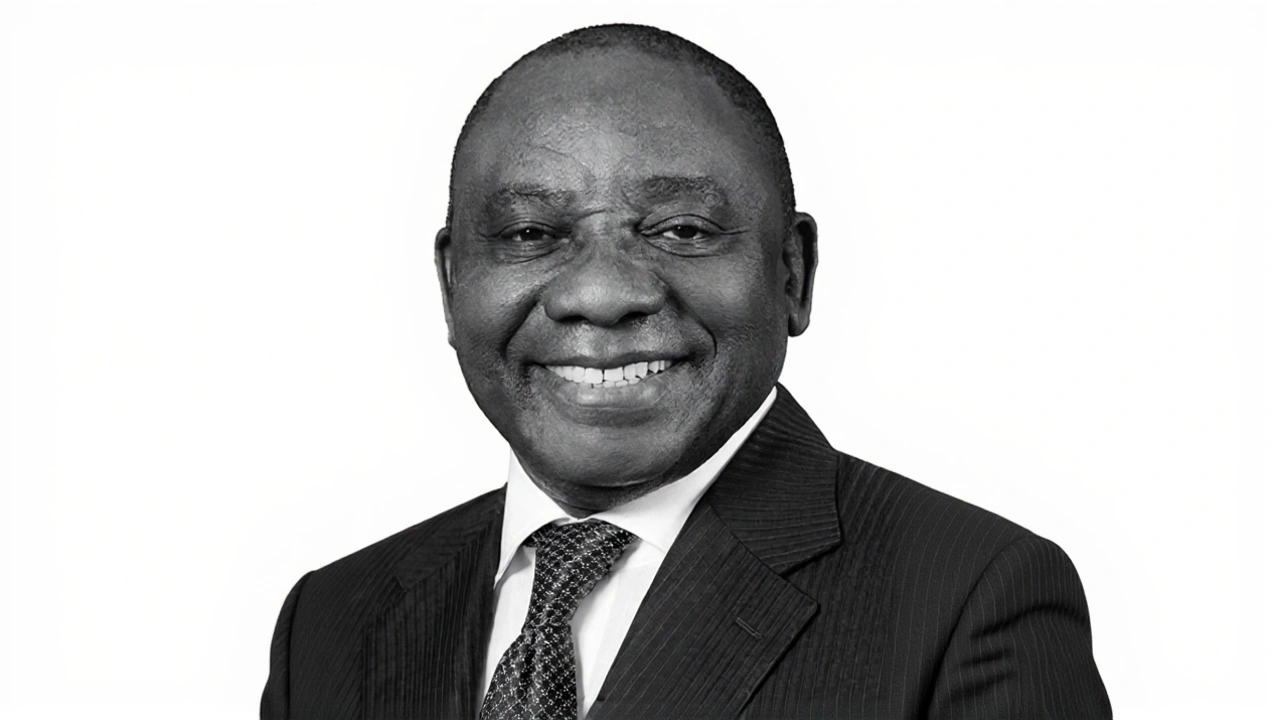
President Cyril Ramaphosa rolled up his sleeves in the early morning sun at Walter Sisulu Square of Dedication in Kliptown, Soweto, on Friday, November 14, 2025—not to give a speech, but to pick up trash. Flanked by Executive Mayor Dada Morero and a dozen CEOs from Johannesburg-based firms, Ramaphosa helped clear debris, sweep sidewalks, and load bags of waste into municipal trucks. It wasn’t photo ops. It was a statement. And it came just eight days before the G20 Leaders' SummitJohannesburg Expo Centre. Here’s the thing: this wasn’t just another cleanup. It was the first major public activation of the CEO-City Cleanup Partnership Programme, a bold experiment in shared accountability between government and business. The City of Johannesburg, under Mayor Morero, has spent months convincing private sector leaders that cleaning up their own city isn’t charity—it’s economic self-preservation. And Ramaphosa didn’t just show up. He showed up. The event, confirmed by the Presidency’s media advisory issued on November 13, was deliberately timed to coincide with South Africa’s final push to prepare for the G20. The summit, set for November 22–23, will mark the culmination of South Africa’s presidency, succeeding Brazil. But the mood wasn’t all celebration. Ramaphosa, speaking to reporters after the cleanup, dropped a bombshell: “The G20 Leaders’ Summit will proceed as planned, despite the absence of representation from the United States government.” The U.S. delegation’s non-attendance, though not yet officially confirmed by Washington, has sent ripples through diplomatic circles. No reason was given. No apology offered. Just silence. The implications are staggering. South Africa is hosting the first G20 summit on African soil in over a decade. The world’s top economies are expected to weigh in on debt relief, climate finance, and digital transformation. Without the U.S., the summit risks becoming a regional forum rather than a global one. But Ramaphosa’s team is betting that action speaks louder than absence. That’s why they chose Kliptown—a place where the 1955 Freedom Charter was drafted, where generations have fought for dignity, and where crumbling infrastructure still tells a story of neglect. The cleanup targeted one of Johannesburg’s most symbolic yet neglected spaces. Walter Sisulu Square, once a beacon of anti-apartheid unity, had become a dumping ground for plastic, old tires, and broken street furniture. The City of Johannesburg, working with 17 corporate partners—including Standard Bank, MTN, and Shoprite—has pledged long-term maintenance contracts for the area. “This isn’t a one-day fix,” said Morero. “We’re signing leases with responsibility.” Behind the scenes, the program has already shifted how city services are funded. Private companies are now contributing not just labor, but maintenance budgets, surveillance cameras, and even waste collection schedules. One CEO, who asked not to be named, admitted: “We used to complain about potholes. Now we’re fixing them. It’s cheaper than losing investors.” The move has drawn praise from urban planners and criticism from some opposition parties. “It’s performative,” said ANC councillor Thabo Nkosi. “They’re cleaning a square for cameras while schools still lack textbooks.” But others see a new model emerging. “This is the first time we’ve seen the private sector take ownership of public space without demanding tax breaks,” said Dr. Lerato Khumalo, a city policy analyst at the University of Johannesburg. “That’s revolutionary.” The government has made it clear: the G20 isn’t just about meetings. It’s about perception. And perception starts with sidewalks. The Presidency’s social media channels flooded with clips of Ramaphosa laughing as he wrestled a tangled pile of plastic bags. The hashtag #CleanJHB trended for 72 hours. Even the local taxi unions joined in—drivers donated fuel vouchers for cleanup crews. On Monday, November 17, Minister Ronald Lamola will brief media at the G20 Media Centre in Nasrec on South Africa’s readiness. He’s expected to unveil a new digital platform for real-time tracking of cleanup progress across 12 priority precincts. The goal? To prove that the city isn’t just ready for the world—it’s leading it. But the real test comes after the G20 leaves. Will the CEOs walk away? Or will they keep cleaning?
Why Kliptown? Why Now?
Kliptown isn’t just a neighborhood. It’s the birthplace of South Africa’s democratic ideals. The 1955 Congress of the People, where the Freedom Charter was adopted, took place right here. Decades later, the same streets still lack consistent water supply, proper sewage, and reliable waste collection. The City of Johannesburg has designated Kliptown as a “Heritage and Renewal Precinct,” meaning it’s eligible for special investment. But progress has been slow. The CEO-City Cleanup was designed to change that. By tying corporate reputation to public space, the city turned volunteers into stakeholders. And by having the president show up in work boots—not a suit—it sent a signal: dignity isn’t a luxury. It’s a baseline.What’s Next for the Cleanup Program?
The program is expanding. By December, it will cover 15 additional high-traffic zones, including Hillbrow, Alexandra, and Diepkloof. Each zone will have a “Clean Zone Coordinator”—a private sector appointee responsible for monthly audits. The City is also rolling out QR codes on street furniture that link to real-time reports on waste collection schedules. Residents can report issues via WhatsApp, a system already handling 1,200 reports weekly.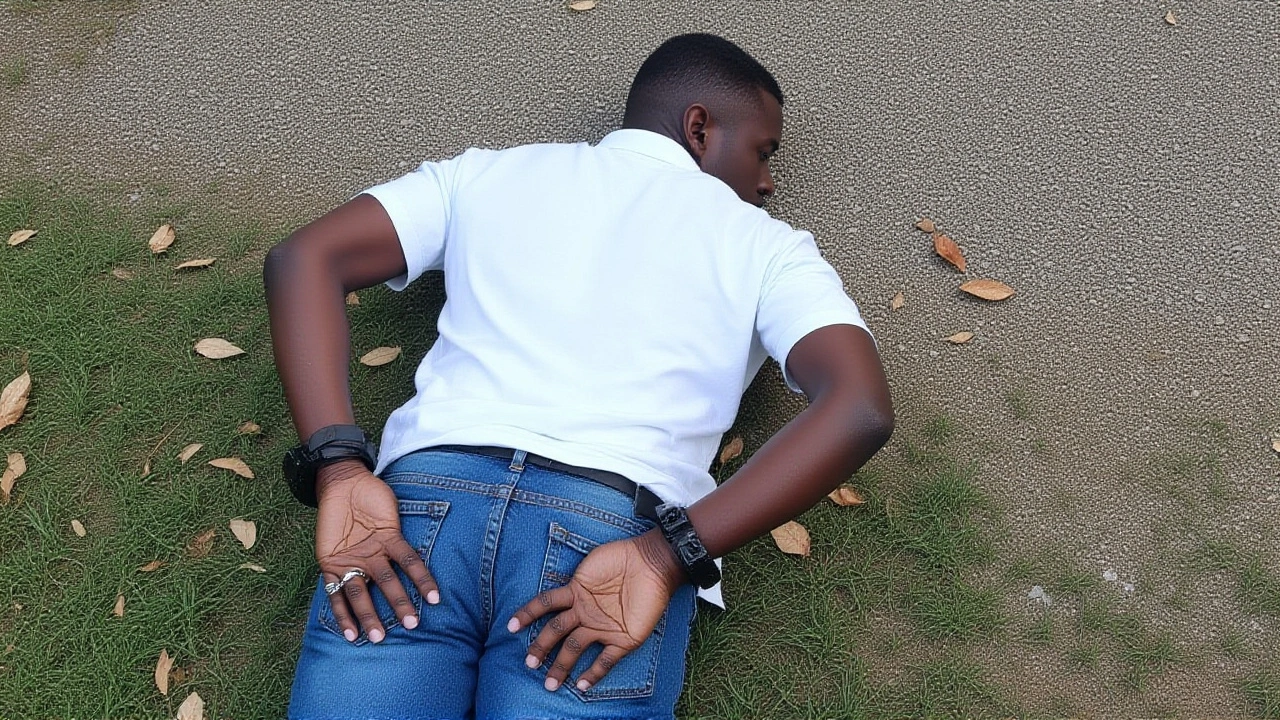
How Will the G20 Be Affected by the U.S. Absence?
Without the U.S., the summit loses its heaviest diplomatic weight. But it also opens space. India, Brazil, and the African Union are expected to take stronger leadership roles. South Africa’s delegation is quietly preparing alternative agendas focused on debt restructuring and climate adaptation—issues that resonate more with Global South nations. The absence may not cripple the summit. It may redefine it.Who’s Paying for This?
The City of Johannesburg has contributed R8.2 million in municipal funds. Private partners have pledged R14.7 million in cash and in-kind services—including waste collection vehicles, security personnel, and digital mapping tools. No taxpayer money was redirected from schools or clinics. Instead, the private sector is investing in brand equity. And for now, it’s working.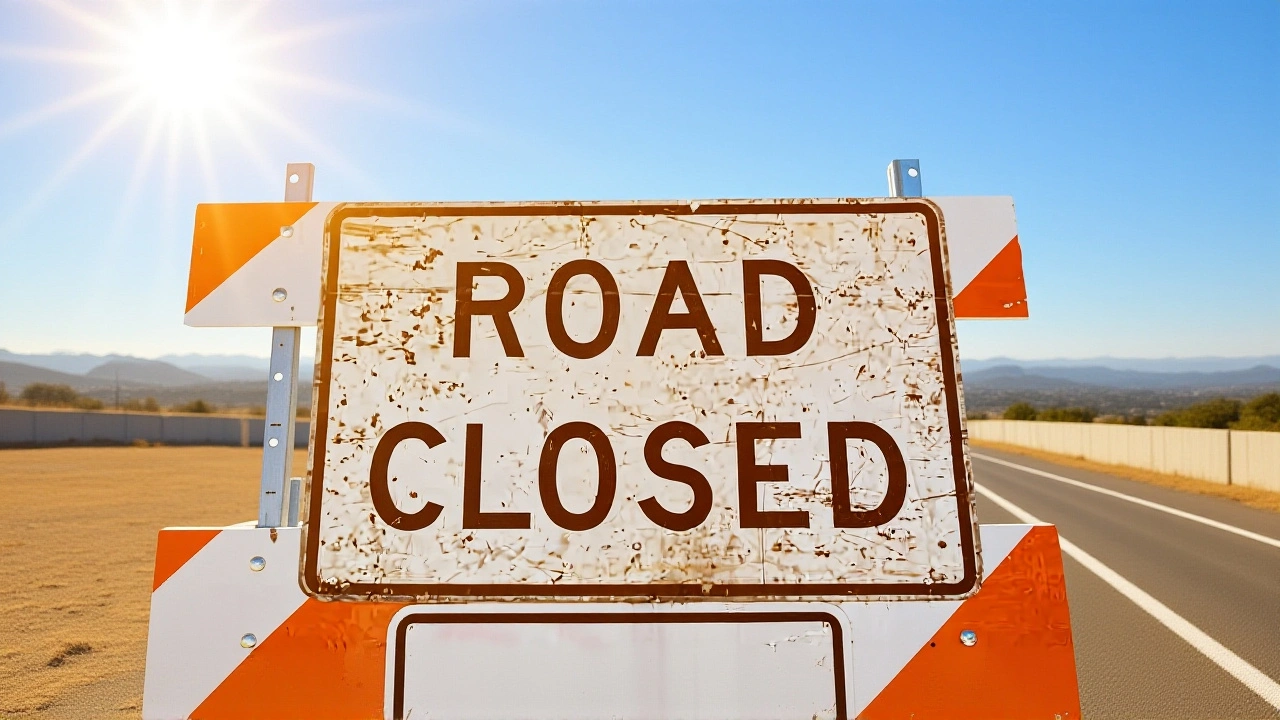
Will This Last Beyond the G20?
That’s the million-rand question. The program’s success hinges on accountability. The City has committed to publishing quarterly reports on maintenance quality and corporate participation. If a company signs on but fails to deliver, its name will be publicly listed as “non-compliant.” For the first time, corporate responsibility is being measured—not by profit, but by pavement.Frequently Asked Questions
Why did President Ramaphosa personally join the cleanup instead of sending a minister?
Ramaphosa’s presence was deliberate. With the U.S. absent from the G20, South Africa needed to project leadership through action, not words. By participating in the cleanup, he signaled that governance isn’t just about policy—it’s about presence. His appearance humanized the government’s efforts and pressured private sector partners to follow through on their commitments.
How is the CEO-City Cleanup different from previous government-led cleanups?
Past cleanups were one-off events, often funded by the city alone and led by municipal workers. This program embeds private companies as long-term partners, with CEOs signing formal agreements to maintain specific zones for 12–24 months. It’s not volunteerism—it’s accountability. Companies now have measurable obligations tied to their public image, and the city is tracking their performance publicly.
What impact could the U.S. absence have on the G20 outcomes?
The U.S. typically drives global financial agendas at the G20. Its absence could weaken consensus on debt relief and climate funding. But it may also empower Global South nations like South Africa, India, and Brazil to lead on alternative priorities—such as digital inclusion and informal economy protections. South Africa is preparing a “Global South Compact” to fill the vacuum, focusing on equitable growth rather than Western-led frameworks.
Are residents of Kliptown benefiting from the cleanup beyond aesthetics?
Yes. The program includes a community jobs component: 42 local residents have been hired as “Clean Zone Ambassadors,” earning a stipend and training in waste management. Additionally, new public benches, solar lighting, and water fountains are being installed. The goal is to transform the square from a dumping ground into a community hub—something residents have demanded for decades.
What happens if a corporate partner fails to maintain their zone after the G20?
The City of Johannesburg has created a public “Clean Zone Scorecard,” updated quarterly. Companies that fail to meet maintenance benchmarks will be publicly named and barred from future city partnership tenders. This isn’t just PR—it’s a contractual obligation. The city is also exploring legal mechanisms to enforce compliance, making this one of the most enforceable public-private partnerships in African urban history.
Is this model being replicated elsewhere in South Africa?
Yes. Pretoria and Cape Town have already launched pilot versions of the program, using Johannesburg’s framework as a blueprint. Durban is in talks to join. The national Department of Cooperative Governance is drafting a policy to institutionalize the model across all metropolitan municipalities. If successful, this could become South Africa’s most significant urban governance innovation since the end of apartheid.
20 Comments
Write a comment
More Articles
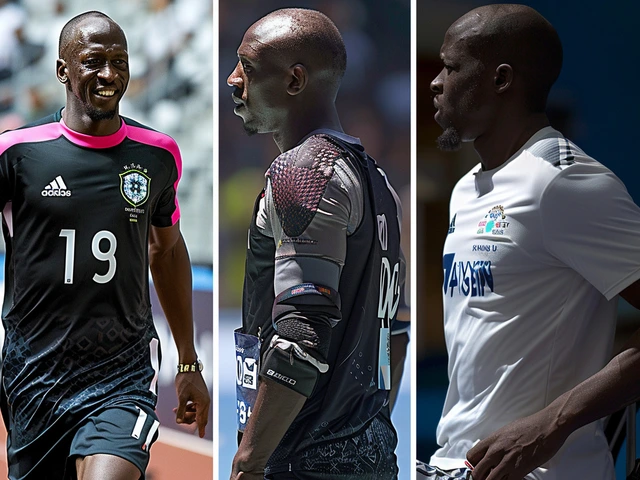
Usain Bolt's Achilles Injury at Soccer Aid: A Setback to His Football Aspirations
Usain Bolt, legendary sprinter, suffered a ruptured Achilles tendon during Soccer Aid, a charity match for UNICEF. This severe injury could require surgery and put his budding football career on hold. Bolt’s transition from track to football faces a major challenge as he grapples with this significant setback.

Inter Miami Set for High-Stakes Showdown Against Philadelphia Union in Saturday's MLS
Inter Miami faces off against Philadelphia Union in a crucial MLS Eastern Conference battle. Despite Lionel Messi's injury, Inter Miami remains favorites, riding an impressive unbeaten streak. Philadelphia, led by top scorer Tai Baribo, aims to challenge them. Other exciting matches include New England Revolution vs. NY Red Bulls and LA Galaxy vs. Orlando City.
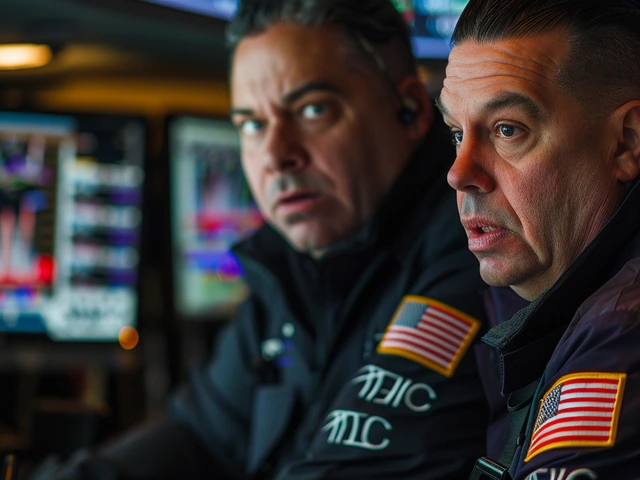
Market Caution Prevails as Stock Futures Show Little Movement Ahead of June's First Trading Day
Stock futures showed minimal movement before June's first trading day, reflecting market caution. Despite a strong May, with the Nasdaq Composite surging 6.9%, tech stocks like Nvidia faced setbacks. Investor anticipation and interest rate concerns loom large, with key economic updates expected, including manufacturing data and a crucial jobs report in the first week of June.
Sumit Garg
November 19, 2025 AT 08:37Let’s be honest-this is a distraction. The U.S. absence isn’t an oversight; it’s a strategic withdrawal from a declining multilateral order. Ramaphosa’s cleanup is performative governance dressed in work boots. The Freedom Charter was drafted here, yes-but now the state outsources dignity to corporate PR teams. When your solution to systemic neglect is CEO-led trash collection, you’ve already lost the plot. The real crisis isn’t litter-it’s the erosion of public trust in institutions that can’t even deliver clean water. This isn’t leadership. It’s theater with a sustainability hashtag.